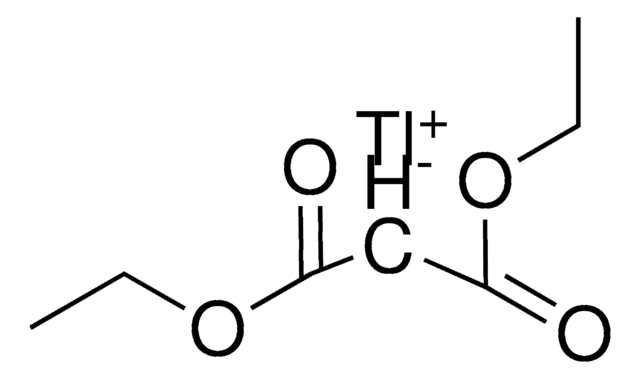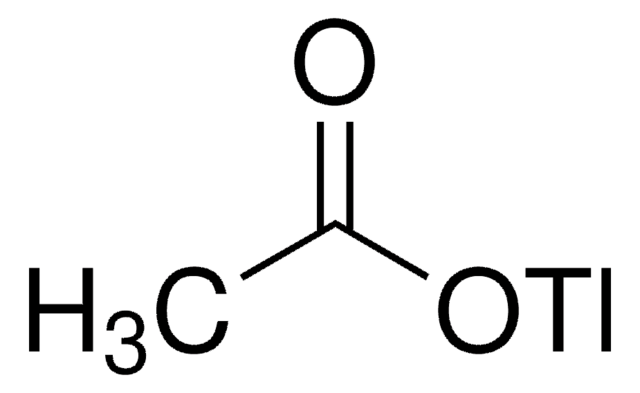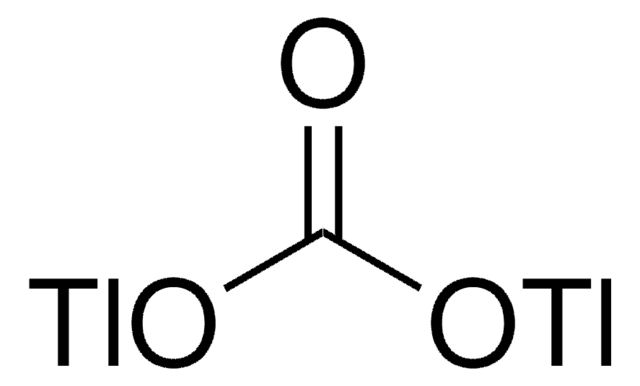310042
Thallium(I) formate
97%
Synonyme(s) :
Formic acid thallium(I) salt, Thallous formate
About This Item
Produits recommandés
Niveau de qualité
Essai
97%
Pertinence de la réaction
core: thallium
reagent type: catalyst
Chaîne SMILES
[Tl]OC=O
InChI
1S/CH2O2.Tl/c2-1-3;/h1H,(H,2,3);/q;+1/p-1
Clé InChI
UESISTHQAYQMRA-UHFFFAOYSA-M
Application
Used in Cherenkov radiation material
Mention d'avertissement
Danger
Mentions de danger
Conseils de prudence
Classification des risques
Acute Tox. 2 Inhalation - Acute Tox. 2 Oral - Aquatic Chronic 2 - STOT RE 2
Code de la classe de stockage
6.1A - Combustible acute toxic Cat. 1 and 2 / very toxic hazardous materials
Classe de danger pour l'eau (WGK)
WGK 3
Point d'éclair (°F)
Not applicable
Point d'éclair (°C)
Not applicable
Équipement de protection individuelle
dust mask type N95 (US), Eyeshields, Faceshields, Gloves, type P2 (EN 143) respirator cartridges
Faites votre choix parmi les versions les plus récentes :
Déjà en possession de ce produit ?
Retrouvez la documentation relative aux produits que vous avez récemment achetés dans la Bibliothèque de documents.
Notre équipe de scientifiques dispose d'une expérience dans tous les secteurs de la recherche, notamment en sciences de la vie, science des matériaux, synthèse chimique, chromatographie, analyse et dans de nombreux autres domaines..
Contacter notre Service technique









